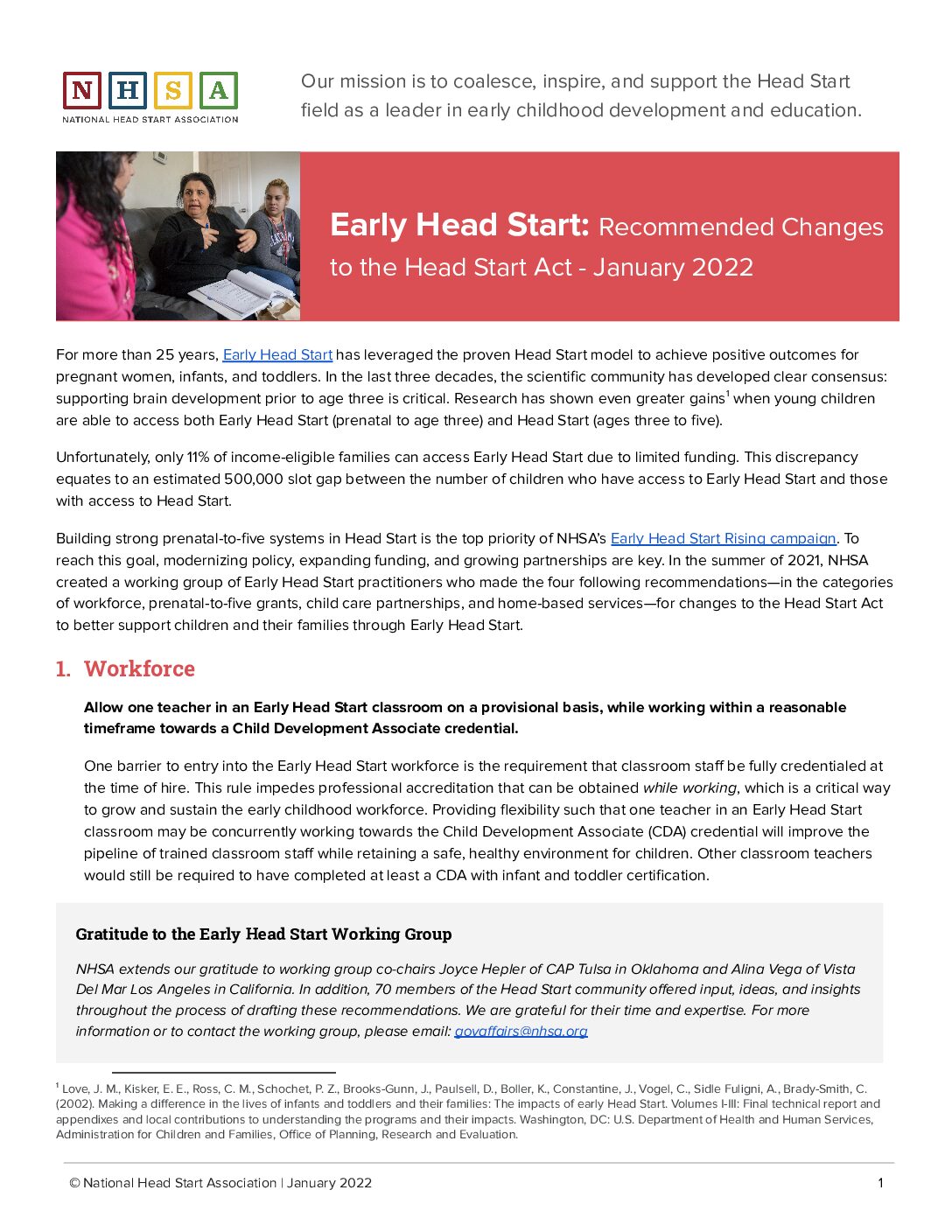For more than 25 years, Early Head Start has leveraged the proven Head Start model to achieve positive outcomes for pregnant women, infants, and toddlers. In the last three decades, the scientific community has developed clear consensus: supporting brain development prior to age three is critical. Research has shown even greater gains when young children are able to access both Early Head Start (prenatal to age three) and Head Start (ages three to five).
Unfortunately, only 11% of income-eligible families can access Early Head Start due to limited funding. This discrepancy equates to an estimated 500,000 slot gap between the number of children who have access to Early Head Start and those with access to Head Start.
Building strong prenatal-to-five systems in Head Start is the top priority of NHSA’s Early Head Start Rising campaign. To reach this goal, modernizing policy, expanding funding, and growing partnerships are key. In the summer of 2021, NHSA created a working group of Early Head Start practitioners who made the four recommendations—in the categories of workforce, prenatal-to-five grants, child care partnerships, and home-based services—for changes to the Head Start Act to better support children and their families through Early Head Start.
Download the policy brief to read through the recommendations.

